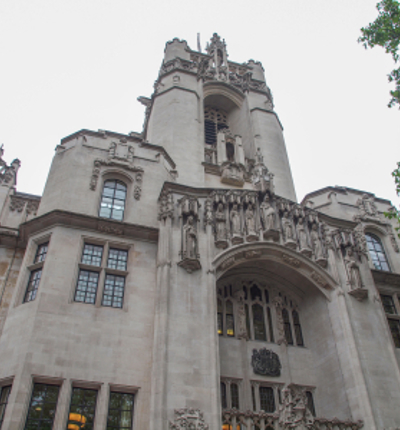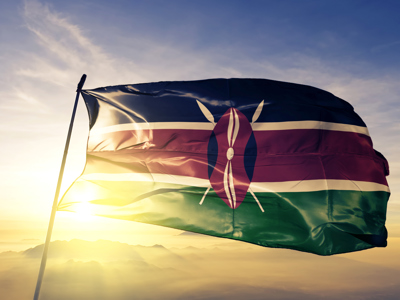
Has the Supreme Court opened the door to reparations claims?
Walker Syachalinga considers a recent decision of the Supreme Court which could mean that people seeking to bring historic claims by relying on previously concealed information face lower hurdles.
Posted on 05 January 2024
Those seeking to bring reparations claims by relying on facts that have previously been concealed could be buoyed by a recent ruling by the Supreme Court.
In Canada Square Operations Ltd v Potter [2023] UKSC 41 (Canada Square), the Supreme Court determined that the way s 32 (1) (b) of the Limitation Act 1980 has been applied goes beyond what is required to show that a person has the right to sue in relation to historic events.
Why this decision could be important to reparations claims
One of the biggest obstacles to suing in relation to historic events, including claims relating to reparations for chattel slavery, is the argument that applicable time limits for bringing such claims have long expired.
However, s 32 (1) (b) LA allows a claimant to sue in circumstances where the applicable limitation period for that claim has expired and they can show that a fact relevant to bringing that claim was deliberately concealed by the defendant.
In practice that means a defendant cannot defend a claim by arguing that a claimant has taken too long to sue in circumstances where a fact which would have enabled the claimant to sue was deliberately concealed by the defendant.
In the context of reparations for chattel slavery, recent developments have brought to light previously concealed facts which may be relevant to bringing new claims.
For instance, details of the Bank of England’s ownership of slave plantations in Grenada were not public until 2021 when a box of documents from the Museum store was ‘discovered’.
Among other matters, the box contained an inventory of names of 599 enslaved women, men, and children taken in 1788, shortly before the Bank came into sole possession of the plantations where the enslaved Africans were held.
Similarly, the Church of England’s Church Commissioners’ research into historic links to transatlantic slavery provided previously concealed information about the Church’s enrichment from the trade and trafficking in enslaved Africans.
These examples show that facts which could be relevant to a right to sue by those seeking reparations for chattel slavery are still coming to light. It is therefore arguable that the clarity provided by the Supreme Court over the application of s 32 (1) (b) could prove useful to such people.
What the Supreme Court decided
The Supreme Court had to decide what it means to deliberately conceal relevant facts from someone who wants to sue in relation to historic events. Until this decision, it was wrongly understood that for a person to rely on s 32 (1) (b) LA, that person had to show that the defendant had breached a legal, social or moral duty in concealing any fact relevant to the claimant’s right to sue. The Supreme Court has now rejected that view and there is no requirement to show the defendant had a duty not to conceal the fact (at [104]).
In addition, the Supreme Court has rejected the view that a claimant must show that the defendant knew that the concealed fact was relevant to the claimant’s right to sue (or to a potential right to sue) or was reckless as to that possibility. It is sufficient that the defendant deliberately ensures that the claimant does not know about the facts in question and therefore cannot sue within the ordinary time limit (at [105]).
All that is required is (1) a fact relevant to the claimant’s right to sue, (2) the concealment of that fact from them by the defendant, either by a positive act of concealment or by a withholding of the relevant information, and (3) an intention on the part of the defendant to conceal the fact or facts in question (at [109]). As for what it means for a defendant to ‘deliberately conceal’, deliberate was analysed in the context of s 32(2) of LA with the court concluding that it refers to conduct where the defendant knows he is committing a breach or intended to commit a breach and does not include reckless conduct nor does it include awareness that the defendant is exposed to a claim (at [153] & [154]).
A word of caution
Canada Square illustrates the importance of properly identifying what rights a person is relying on to sue. That case was brought under section 140A of the Consumer Credit Act 1974 which gives claimants certain consumer rights. Generally speaking, a claimant who wants to rely on s 32 (1) (b) to sue must rely on one of the rights “for which a period of limitation is prescribed by” the Limitation Act 1980. “In most cases, the right of action will be based on the alleged breach of an obligation owed by the defendant to the claimant” (at [101]).
In In Re African American Slave Descendants Litigation, the descendants of enslaved African Americans lost a case about reparations for slavery in part because they failed to identify the rights on which they were relying. The judge criticised this, stating at p.747 that “the fact of having an enslaved ancestor, even one transported, insured, or put to work by the defendants, does not seem sufficient injury without something more … descent from slaves is not of itself an injury, rather the sorts of legally relevant injuries are harms suffered by individuals that are attributable to the ongoing effects of slavery”.
Lastly, the previously concealed facts must be relevant to the to the right to sue. That means facts without which the right to sue is incomplete as per Arcadia Group Brands Ltd v Visa Inc [2015] EWCA Civ 883. Facts which merely improve prospects of succeeding are not facts relevant to the Claimant's right to sue and facts bearing on a matter which is not a necessary ingredient of the right to sue but which may provide a defence are not facts relevant to the Claimant's right to sue
So, has the Supreme Court opened the door to reparations claims? Possibly, depending on the right to sue being relied on and whether the claimant can show the three factors above.
Leigh Day has a devoted team looking into reparations for chattel slavery and we are interested in hearing from those seeking to bring reparations claims.

Walker Syachalinga
Walker is an associate solicitor in the international and groups claims department

What King Charles should do on his State visit to Kenya
As King Charles makes his first visit to Kenya as British Monarch, he will acknowledge the wrongs suffered by thousands of Kenyans at the hands of British forces but will stop short of apologising. Associate solicitor in Leigh Day’s international department, Walker Syachalinga, argues that the King should go further and apologise for the ill-treatment of Kenyans under British colonial rule.

Reparations for British chattel enslavement: time to pardon Guyana abolitionists?
Trainee solicitor Walker Syachalinga argues that the British government has a responsibility to pardon those involved in an uprising 200 years ago on a British-owned plantation on which enslaved Africans were forced to work.

